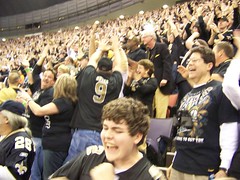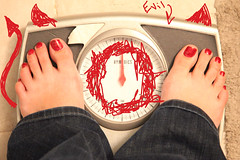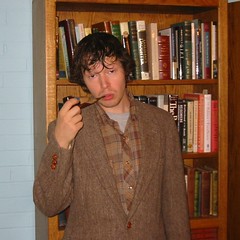 The New York Times recently featured an op-ed by David Brooks on the role of sports in American society. Commenting on the teachings of sociologist Eugen Rosenstock Huessy:
The New York Times recently featured an op-ed by David Brooks on the role of sports in American society. Commenting on the teachings of sociologist Eugen Rosenstock Huessy:
He used literary and other allusions when he wanted to talk about ethics, community, mysticism and emotion. But none of the students seemed to get it. Then, after a few years, he switched to sports analogies. Suddenly, everything clicked.
“The world in which the American student who comes to me at about twenty years of age really has confidence in is the world of sport,” he would write. “This world encompasses all of his virtues and experiences, affection and interests; therefore, I have built my entire sociology around the experiences an American has in athletics and games.”
Brooks summarizes Michael Allen Gillespie’s take on how American sports are organized:
Throughout Western history, Gillespie argues, there have been three major athletic traditions. First, there was the Greek tradition. Greek sports were highly individualistic. There was little interest in teamwork. Instead sports were supposed to inculcate aristocratic virtues like courage and endurance. They gave individuals a way to achieve eternal glory.
Then, there was the Roman tradition. In ancient Rome, free men did not fight in the arena. Roman sports were a spectacle organized by the government. The free Romans watched while the slaves fought and were slaughtered. The entertainment emphasized the awesome power of the state.
Finally, there was the British tradition. In the Victorian era, elite schools used sports to form a hardened ruling class. Unlike the Greeks, the British placed tremendous emphasis on team play and sportsmanship. If a soccer team committed a foul, it would withdraw its goalie to permit the other team to score. The object was to inculcate a sense of group loyalty, honor and rule-abidingness — traits that were important to a class trying to manage a far-flung empire.
Gillespie argues that the American sports ethos is a fusion of these three traditions. American sport teaches that effort leads to victory, a useful lesson in a work-oriented society. Sport also helps Americans navigate the tension between team loyalty and individual glory. We behave like the British, but think like the Greeks, A. Bartlett Giamatti, a former baseball commissioner, once observed.
Brooks also makes the case for the role of collective effervescence that college sports provide:
Several years ago, I arrived in Madison, Wis., for a conference. It was Saturday morning, and as my taxi got close to campus, I noticed people dressed in red walking in the same direction. At first it was a trickle, then thousands. It looked like the gathering of a happy Midwestern cult, though, of course, it was the procession to a football game.
In a segmented society, big-time college sports are one of the few avenues for large-scale communal participation. Mass college sports cross class lines. They induce large numbers of people in a region to stop, at the same time, and share common emotional experiences.
The crowds at big-time college sporting events do not sit passively, the way they do at a movie theater. They roar, suffer and invent chants (especially at Duke basketball games). Mass college sports are the emotional hubs at the center of vast networks of analysis, criticism and conversation. They generate loyalties that are less harmful than ethnic loyalties and emotional morality plays that are at once completely meaningless and totally consuming.

 Many skinny Americans are fed up with obesity, reports the
Many skinny Americans are fed up with obesity, reports the 



 The
The  A recent
A recent  A recent piece in the
A recent piece in the  The
The